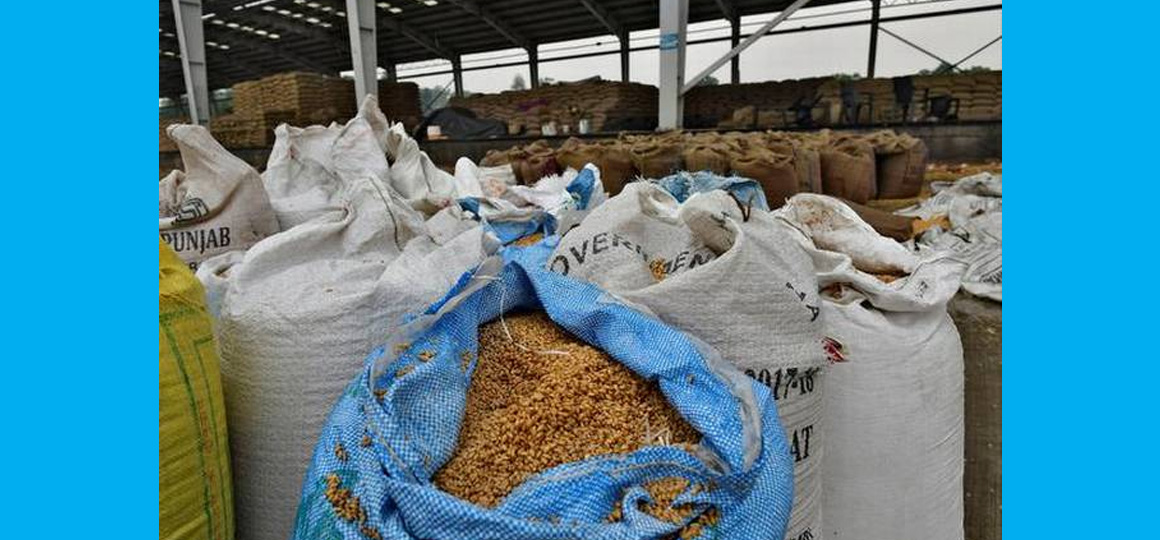India has offered to send 50,000 MT wheat, medical aid via the land route via Pakistan
One month after India offered humanitarian assistance to Afghanistan, Pakistan’s Prime Minister Imran Khan said his Government would allow the aid to transit over the land route through Pakistan. India had protested the delay in Pakistan’s permissions for the aid to be facilitated, including most recently at the 8-nation Regional Security Dialogue on Afghanistan in New Delhi, which had ended with a declaration that called for assistance to be ‘unimpeded’.
Worldview with Suhasini Haidar | India and Pakistan meetings on Afghanistan
“[The Prime Minister] announced Pakistan’s decision to allow the 50,000 MT of wheat India has offered to provide Afghanistan as humanitarian assistance to go through Pakistan as soon as modalities are finalised with the Indian side,” the Pakistan PM’s office said, adding that Pakistan has also decided to facilitate “the return of Afghan patients who had gone to India for medical treatment and are stuck there”.
MEA yet to respond to announcement
The Ministry of External Affairs did not respond to the announcement from Pakistan. On November 11, MEA spokesperson Arindam Bagchi had said India was looking at all possibilities to transfer the aid “but there have been difficulties due to lack of unimpeded access”.
Asked why India had not sent the aid through the Chabahar port in Iran to the Afghan border, the route it had employed in the last few years, officials declined to comment, but suggested that the route would prove too circuitous given the immediate need in Afghanistan.
The offer of wheat and other medical supplies was made formally to the Taliban regime by a Ministry of External Affairs delegation that attended the Moscow format conference in Russia and met Taliban Deputy Prime Minister Abdul Salam Hanafi on October 20.
According to a Taliban spokesperson, during the meeting, senior MEA official J.P. Singh had said India was keen to provide Afghanistan “extensive humanitarian assistance” in its “time of difficulty”. The meeting was one of only two publicly announced engagements with the Taliban regime since it took control of Kabul on August 15.
Border post closed for trade
However, despite the Taliban accepting the offer from India immediately, Pakistan did not respond given the tensions between the two countries for weeks. The border post at Atari-Wagah has been closed for trade since August 2019, when Pakistan cancelled all trade links after the Government’s decision to amend Article 370 and bifurcate Jammu and Kashmir. Subsequently in July 2020, Pakistan opened the route only one-way, for Afghan exporters to send goods to India as stipulated in the Afghanistan-Pakistan Transit Trade Agreement (APTTA).
Experts said even with the new announcement from Pakistan, the aid could take several months to transport. At present, the Integrated Check Post (ICP) clears only about 5-15 trucks carrying Afghan fruit and dry fruit into India each day, and the infrastructure for a higher number of trucks, including labour required to unload and reload the shipments, is not in place. 50,000 MT of wheat would require approximately 2,500 trucks, estimated Afaq Hussain, Director at the Bureau of Research on Industry and Economic Fundamentals (BRIEF) institute, who said thousands of workers and traders who were left unemployed after the break in trade ties would now hope that Pakistan will restore bilateral trade as well.
“This should be the first step to restart other economic engagements particularly India-Pakistan trade, which had reached about $2.5 billion annually before it was stopped,” he told The Hindu.
Mr. Khan’s approval for the Indian convoy was part of a number of other measures that are part of a Pakistan “assistance package” for Afghanistan announced on Monday, including medical aid, food shipments, border facilitation and more visas to Afghans came even as the United Nations declared Afghanistan to be on the “brink of a humanitarian catastrophe that is preventable” .
In a briefing on November 17 on Afghanistan, U.N. Secretary-General’s Special Representative Deborah Lyons said the Afghan GDP has contracted 40% due to financial sanctions and an asset freeze since August, and as the winter proceeds “up to 23 million Afghans will be in crisis or emergency levels of food insecurity”.






NO COMMENT